
- 24 Jul 2023
- Research & Ideas
Part-Time Employees Want More Hours. Can Companies Tap This ‘Hidden’ Talent Pool?
Businesses need more staff and employees need more work, so what's standing in the way? A report by Joseph Fuller and colleagues shows how algorithms and inflexibility prevent companies from accessing valuable talent in a long-term shortage.

- 09 May 2023
- Research & Ideas
Where to Find Remote Work Now: 250 Million Job Postings Paint a Complex Picture
While many companies let employees work remotely during the height of COVID-19, conditions have since become more nuanced, according to research by Raffaella Sadun and colleagues. What do these shifts mean for talent managers?

- 04 Apr 2023
- Book
Two Centuries of Business Leaders Who Took a Stand on Social Issues
Executives going back to George Cadbury and J. N. Tata have been trying to improve life for their workers and communities, according to the book Deeply Responsible Business: A Global History of Values-Driven Leadership by Geoffrey Jones. He highlights three practices that deeply responsible companies share.

- 31 Mar 2023
- Research & Ideas
Can a ‘Basic Bundle’ of Health Insurance Cure Coverage Gaps and Spur Innovation?
One in 10 people in America lack health insurance, resulting in $40 billion of care that goes unpaid each year. Amitabh Chandra and colleagues say ensuring basic coverage for all residents, as other wealthy nations do, could address the most acute needs and unlock efficiency.
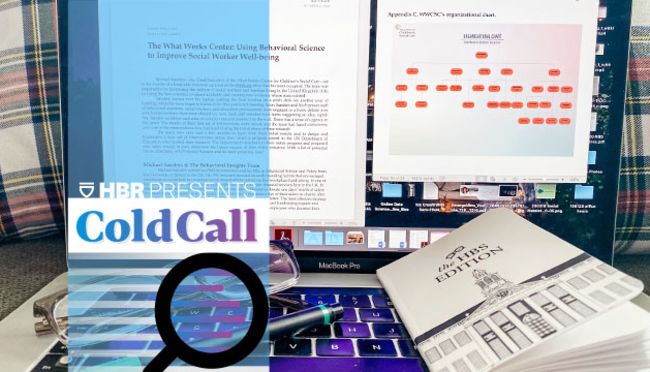
- 05 Jan 2021
- Cold Call Podcast
Using Behavioral Science to Improve Well-Being for Social Workers
For child and family social workers, coping with the hardships of children and parents is part of the job. But that can cause a lot of stress. Is it possible for financially constrained organizations to improve social workers’ well-being using non-cash rewards, recognition, and other strategies from behavioral science? Assistant Professor Ashley Whillans describes the experience of Chief Executive Michael Sanders’ at the UK’s What Works Centre for Children’s Social Care, as he led a research program aimed at improving the morale of social workers in her case, “The What Works Centre: Using Behavioral Science to Improve Social Worker Well-being.” Open for comment; 0 Comments.

- 24 Jul 2019
- Lessons from the Classroom
Can These Business Students Motivate Londoners to Do the Right Thing?
In the Harvard Business School course Behavioral Insights, students work in the UK with psychology experts to understand what motivates consumers and workers. What they learn can help businesses of all types, says Michael Luca. Open for comment; 0 Comments.
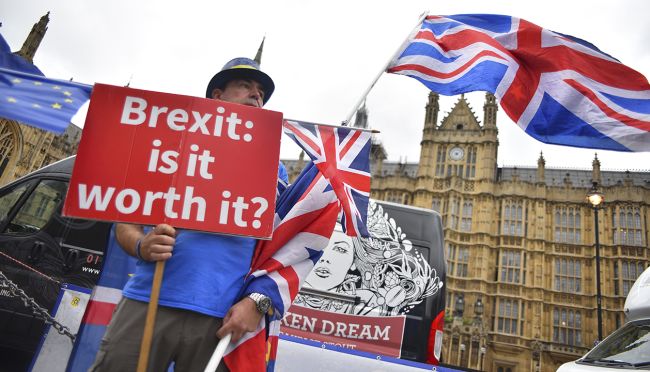
- 09 Jan 2019
- Research & Ideas
The UK Needs a Bold Strategy Around Competition to Survive Brexit
There is little doubt that the United Kingdom’s separation from Europe will reduce its competitiveness for the foreseeable future, argues Michael E. Porter. Here's what can be done about it. Open for comment; 0 Comments.

- 10 Dec 2018
- Working Paper Summaries
Platform Competition: Betfair and the U.K. Market for Sports Betting
Since the early 2000s, online betting exchanges have had a new relationship with customers relative to traditional bookmakers, providing a platform to match individuals willing to lay and back the same outcome. This study shows how exchanges’ platform design choices have major implications for their likelihood of success.

- 27 Sep 2018
- Working Paper Summaries
UK Competitiveness after Brexit
This paper discusses the UK’s economic performance and policy approach in the run-up to the June 2016 Brexit referendum, analyzes the impact of European Union membership and loss of membership on UK competitiveness, and sets forth a new strategic agenda to enhance UK competitiveness in the post-Brexit era.
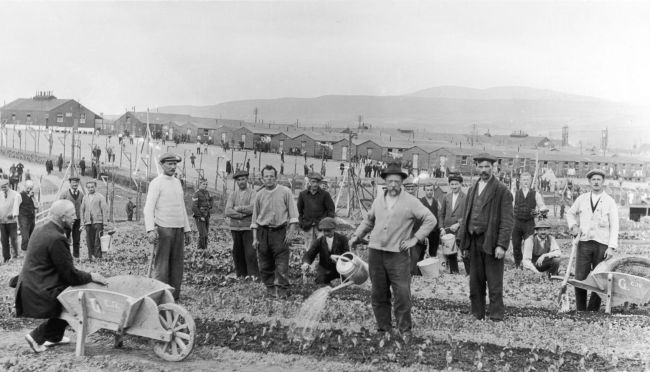
- 16 May 2018
- Research & Ideas
How Companies Managed Risk (and Even Benefitted) in World War Internment Camps
Foreign businesses located in at-war countries are often victims of expropriation. Historian Valeria Giacomin explores how German businesses in the United Kingdom and India mitigated risk and even benefitted when their employees were placed in internment camps during the World Wars. Open for comment; 0 Comments.

- 26 Mar 2018
- Working Paper Summaries
The Impact of CEOs in the Public Sector: Evidence from the English NHS
To what extent do CEOs impact their organizations? This study finds little consistent evidence of any CEO effect on the large set of production metrics examined in hospitals averaging 4,500 employees in the English National Health Service. This result stands in stark contrast with earlier findings of a CEO effect in the private sector and smaller public sector organizations.
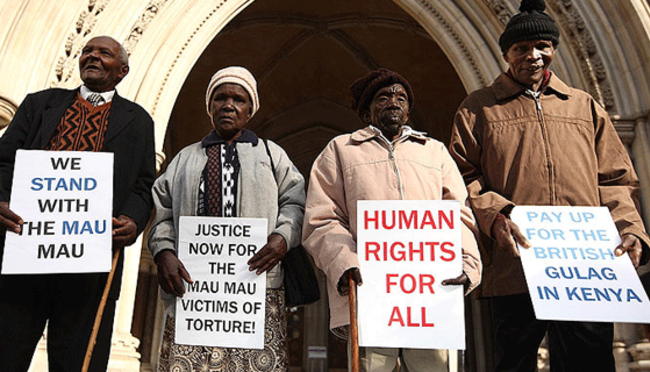
- 07 Jun 2017
- Research & Ideas
How an African History Scholar Became a Modern Righter of Wrongs
A scholar of colonial-era African history, Caroline M. Elkins had dramatic success turning prior knowledge into real-world action—namely, with a groundbreaking lawsuit against the British government, which revealed a chillingly bureaucratic process for destroying evidence of torture. Open for comment; 0 Comments.
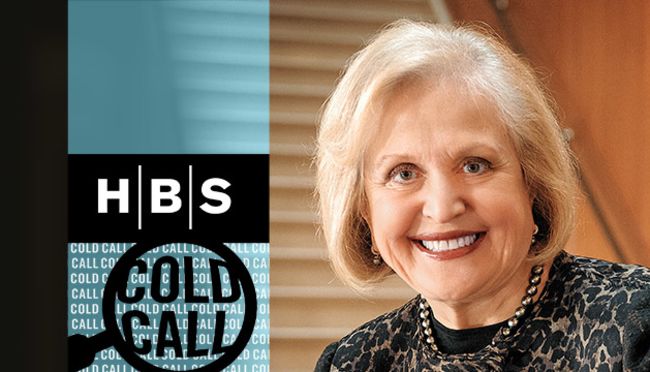
- 20 Apr 2017
- Cold Call Podcast
Making Health Insurance That Consumers Actually Like
By motivating its insurance customers to take care of themselves, South African firm Vitality has expanded to the United Kingdom and China. In this podcast, Professor Regina Herzlinger discusses potential impacts of this model for health care in the United States. Open for comment; 0 Comments.
- 06 Jul 2016
- What Do You Think?
How Do We Pay for the Costs of Globalization?
SUMMING UP The benefits of globalization outweigh the problems it causes, but James Heskett's readers are far from united on how to the fix human and societal costs. What do YOU think? Open for comment; 0 Comments.
- 24 Jun 2016
- Op-Ed
Why Brexit is a Big Deal
The consequences of Britain's vote to leave the European Union will be far-reaching. John Quelch shares his thoughts on the ramifications of Brexit. Open for comment; 0 Comments.

- 21 Jan 2016
- Working Paper Summaries
The Globalization of Angel Investments: Evidence across Countries
Examining a cross-section of 13 angel groups who considered transactions across 21 countries, this study finds that angel investors have a positive impact on the growth of the firms they fund, their performance, and survival, while the selection of firms that apply for angel funding varies across countries.

- 14 Dec 2015
- Working Paper Summaries
Business Groups Exist in Developed Markets Also: Britain Since 1850
Looking at U.K. history, Geoffrey Jones finds that groups of companies bound through formal or informal ties can add value in developed markets as well as developing markets.

- 15 May 2015
- Research & Ideas
Kids Benefit From Having a Working Mom
Women whose moms worked outside the home are more likely to have jobs themselves, are more likely to hold supervisory responsibility at those jobs, and earn higher wages than women whose mothers stayed home full time, according to research by Kathleen McGinn and colleagues. Open for comment; 0 Comments.
- 25 Oct 2010
- HBS Case
Tesco’s Stumble into the US Market
UK retailer Tesco was very successful penetrating foreign markets—until it set its sights on the United States. Its series of mistakes and some bad luck are captured in a new case by Harvard Business School marketing professor John A. Quelch. Key concepts include: Entering the US, Tesco deserves credit for creating a neighborhood market approach—emphasizing fresh produce and meats, and good quality but value-priced prepared meals. By not partnering or hiring local executives, Tesco missed the opportunity to learn more about the habits and needs of target customers. Tesco rightly aimed to scale the concept as soon as possible so that fixed overhead investments in its own distribution centers could be spread across a larger number of stores. Perhaps Tesco's original rollout plan was too ambitious, with executives assuming that the company would get everything right on the first try. Tesco has listened to its customers, learned from its mistakes, and made appropriate midcourse corrections. Closed for comment; 0 Comments.

Can Remote Surgeries Digitally Transform Operating Rooms?
Launched in 2016, Proximie was a platform that enabled clinicians, proctors, and medical device company personnel to be virtually present in operating rooms, where they would use mixed reality and digital audio and visual tools to communicate with, mentor, assist, and observe those performing medical procedures. The goal was to improve patient outcomes. The company had grown quickly, and its technology had been used in tens of thousands of procedures in more than 50 countries and 500 hospitals. It had raised close to $50 million in equity financing and was now entering strategic partnerships to broaden its reach. Nadine Hachach-Haram, founder and CEO of Proximie, aspired for Proximie to become a platform that powered every operating room in the world, but she had to carefully consider the company’s partnership and data strategies in order to scale. What approach would position the company best for the next stage of growth? Harvard Business School associate professor Ariel Stern discusses creating value in health care through a digital transformation of operating rooms in her case, “Proximie: Using XR Technology to Create Borderless Operating Rooms.”